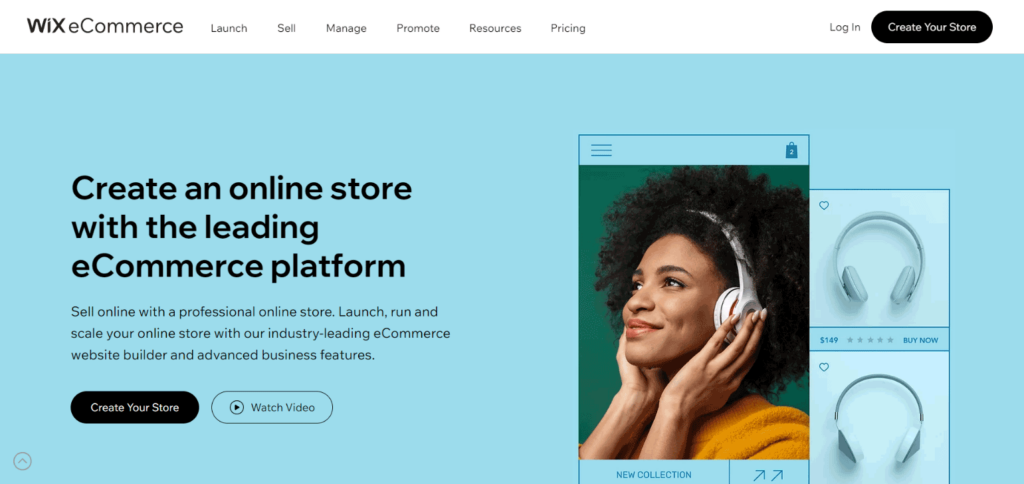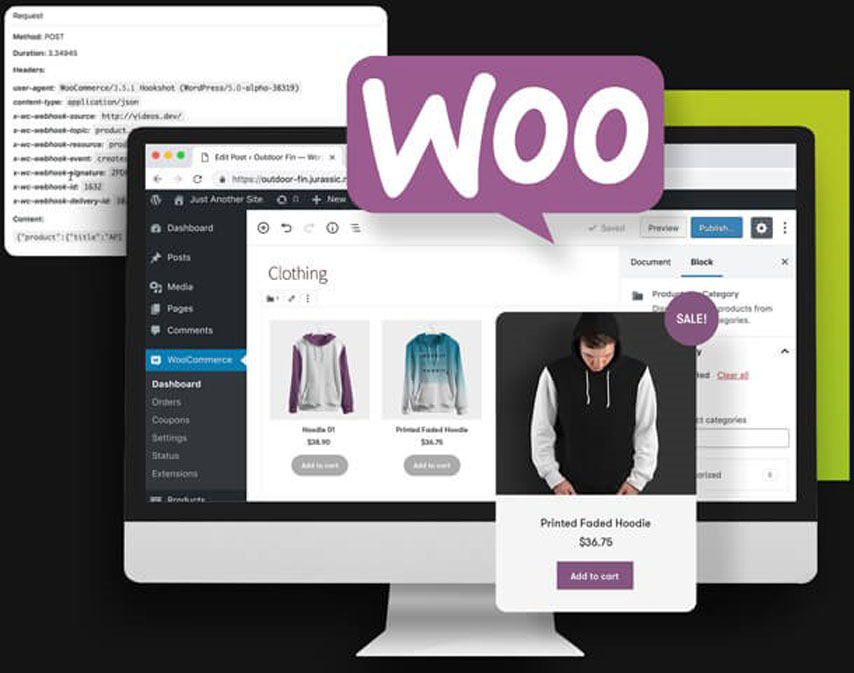Table of Contents
So, you’ve got this brilliant idea for an online business, right? But choosing the right e-commerce platform can make all the difference. Imagine having a platform that not only showcases your products beautifully but also handles payments, manages inventory effortlessly, and scales with your growing business ambitions.
Enter the world of e-commerce platforms for startups. Shopify is a powerhouse known for its user-friendly interface and extensive app store that lets you customize everything from storefronts to marketing campaigns with ease. It’s like having a digital Swiss army knife for your business.
Then there’s WooCommerce, which seamlessly integrates with WordPress, offering flexibility and control over your online store’s design and functionality. It’s like having your own bespoke tailor for your e-commerce needs.
But wait, it doesn’t stop there! BigCommerce steps up with robust features designed to help startups succeed—from SEO tools to multi-channel selling capabilities. It’s like having a business mentor who’s been through it all and knows exactly what you need.
And don’t forget Squarespace. It’s sleek, it’s simple, and it’s perfect for startups looking to get up and running quickly with its intuitive setup and seamless integration with Square’s payment processing.
Each of these platforms brings something unique to the table, whether it’s ease of use, customization options, or powerful analytics to track your success. So, buckle up and dive deep into the world of e-commerce platforms, which may have you saying, “Yes, this is the one!”
1. Wix
2. Shopify
3. WooCommerce
4. BigCommerce
5. Squarespace
Overview of the Best Ecommerce Platforms for Startups
How to Choose the Best Ecommerce Platforms for Startups
Pros and Cons of the Best Ecommerce Platforms for Startups
What to Watch Out For
Pro Tip
Recap
1. Wix

Wix is a versatile website builder that offers e-commerce capabilities. Its drag-and-drop interface and wide array of templates make it a great choice for small businesses and individuals.
- • User-friendly interface
- • Good customer support
- • Excellent mobile optimization
- • Limited platform customization
- • Displays ads on free-plan websites
- • Easy-to-use drag-and-drop interface
- • Customer support via live chat, email, and phone
- • Automatically optimizes websites for mobile devices
2. Shopify

Shopify is a popular and robust e-commerce platform with features like dropshipping and customizable themes. It’s designed to support small businesses with a user-friendly interface.
- • Handles hosting and security
- • Expands functionality through apps
- • Optimizes for mobile
- • Customizable design
- • Multiple payment gateways
- • 24/7 customer support
- • Enhances SEO
- • Effective cart recovery
- • Additional transaction fees
- • Ongoing monthly payments
- • Limited blogging capabilities
- • Customization restrictions
- • Challenges with data migration
- • Limited control over transactions
- • Extra costs for advanced features
- • Comprehensive features for e-commerce, including inventory management and marketing tools
- • Unlimited bandwidth and online storage
- • Mobile app for managing your business on the go
- • Fast and reliable website performance
3. WooCommerce

WooCommerce is a powerful WordPress plugin offering flexible e-commerce solutions. Its extensive library of plugins and themes allows for significant customization.
- • Strong user community
- • Extensive store customization
- • Mobile optimization
- • Diverse product support
- • Cost-effective
- • Supports business growth
- • Enhances SEO
- • Smooth integration with various services
- • Detailed sales analytics
- • Steep learning curve
- • Requires regular maintenance.
- • Security vulnerabilities
- • Challenges with large-scale growth
- • Limited built-in features
- • Dependent on hosting quality
- • Limited dedicated support
- • Potential add-on costs
- • Supports popular SEO plugins for better rankings.
- • Diverse themes, extensions, and plugins
- • Customizable to meet specific business needs
- • Integrated with Stripe and PayPal, plus 130+ region-specific payment gateways
4. BigCommerce

BigCommerce offers a user-friendly interface, mobile-responsive designs, and a wide range of built-in features. It’s ideal for establishing a professional online store with scalable options and strong SEO.
- • Simplifies store setup and management.
- • Mobile-responsive designs
- • Comprehensive built-in features
- • Scales with your business
- • Enhances SEO visibility
- • Restricted app ecosystem
- • Various pricing structures
- • Design customization limitations
- • Learning curve for beginners
- • Transaction fees alongside payment gateway charges
- • Has pricing of $39/month (standard), $105/month (plus), and $399/month (pro).
- • 25% discount on annual payments
- • A 15-day free trial is available.
PRO TIPS >>> Best eCommerce Platforms for WordPress
5. Squarespace

Squarespace is known for its beautiful and professional website designs. It offers integrated e-commerce functionality suitable for small to medium-sized businesses.
- • Intuitive interface
- • Modern design templates
- • All-in-one platform (hosting, domains, SSL)
- • Responsive design
- • 24/7 customer support
- • Limited customization for advanced users
- • Restricts third-party integrations
- • Less robust e-commerce features
- • Easy layout customization and content addition
- • Trendy store design
- • 24/7 customer support via live chat and email
- • Sell a variety of products.
- • Market products on Facebook, Instagram, TikTok, etc.
Overview of the Best Ecommerce Platforms for Startups

Explore the dynamic world of e-commerce platforms crafted for small businesses like yours. Imagine you’re an aspiring entrepreneur with a vision, eager to enter the realm of online commerce. What you need is an e-commerce platform that perfectly supports your growth.
Imagine a platform that seamlessly turns your ideas into a fully functional online store, featuring customizable templates, intuitive interfaces, and robust tools. This platform goes beyond just setup; it supports you in managing inventory, processing orders, and securely handling payments. Now, consider the analytics that provide insights into customer behavior, helping you adjust your offerings to its preferences.
This platform recognizes the importance of mobile commerce, ensuring your store looks and functions perfectly across devices. Plus, customer support is always accessible, ready to help you along the way. There you have it: the ideal e-commerce platform for small businesses—your key to turning entrepreneurial dreams into online success.
How to Choose the Best Ecommerce Platform for Startups
- Define Your Needs: Identify your business requirements, including features like inventory management, payment options, and marketing tools.
- User-Friendly Interface: Ensure the platform is intuitive for efficient store management.
- Scalability: Choose a platform that can grow with your business.
- Payment Options: Support for various payment gateways is crucial for a smooth checkout experience.
- Security: Look for robust security measures, including SSL certificates and PCI compliance.
- Customer Support: Responsive customer service and comprehensive resources are essential.
- Design and Customization: Select a platform with appealing templates and customization options to reflect your brand.
- Costs: Compare pricing plans and consider transaction fees and additional costs.
- Reviews and Recommendations: Read reviews and try out demos to gather insights from other business owners.
Pros and Cons of the Best Ecommerce Platforms for Startups
Pros
- Scalability
- Ease of use
- Quick setup
- Mobile responsiveness
- Customization options
- Integrated features
- Access to support and resources
- Security measures
- Marketing tools
Cons
- Limited customization options
- Platform lock-in
- Transaction fees per sale
- Learning curve
- Limited SEO control
- Dependence on provider reliability
- Potential performance issues with growth
- Limited payment options
- Branding restrictions
GET SMARTER >>> Magento Online Store: Worth the Money and Trouble?
What to Watch Out For

- Hidden Fees: Be wary of additional fees that may not be immediately apparent, such as transaction fees, payment processing charges, and costs for premium add-ons or advanced features.
- Scalability Issues: Ensure the platform can handle increased traffic, product range, and orders as your business grows to avoid performance problems in the future.
- Limited SEO Capabilities: Some platforms might lack robust SEO features, which can impact your store’s visibility in search engine results. Verify the platform’s SEO capabilities.
- Customer Support Quality: Check if the platform offers responsive customer support and comprehensive resources to help you address any issues promptly. Lack of support can be a major hindrance.
- Customization Restrictions: Make sure the platform allows enough flexibility to suit your brand and business needs. Some platforms may have limitations on design and functionality customization.
- Platform Lock-In: Be aware of potential difficulties in migrating to another platform in the future. Platform lock-in can restrict your options and make transitions costly and complicated.
- Payment Options: Ensure the platform supports a variety of payment gateways to provide your customers with a seamless and hassle-free checkout experience.
- Security Vulnerabilities: Choose a platform with strong security measures, including SSL certificates and PCI compliance, to protect customer data and build trust.
- Performance Issues: Watch for platforms that may experience performance issues, such as slow loading times or downtime, especially as your business scales.
- Limited Integration: Check if the platform can integrate smoothly with other tools and services you use, like accounting software, email marketing, and analytics, to streamline your operations.
Pro Tips
- Select a platform with an intuitive interface to simplify store management and make it easy for you and your team to navigate.
- Ensure the platform offers strong mobile optimization since a significant portion of online shopping happens on mobile devices.
- Take advantage of free trials or demos to thoroughly test the platform’s features and ensure it aligns with your business needs before committing.
- Ensure the platform can integrate with other tools you use, such as accounting software, email marketing services, and analytics tools.
- Opt for platforms that offer robust security features, including SSL certificates, encryption, and secure payment gateways to protect customer data.
- Choose a platform that can grow with your business, accommodating increased traffic, a larger product range, and more orders without performance issues.
- Select a platform that offers extensive customization options to tailor your online store to match your brand’s identity and unique requirements.
- Choose a platform with responsive customer service, extensive documentation, and a helpful user community to assist you when needed.
- Prioritize platforms with strong SEO capabilities to enhance your store’s visibility in search engine results, driving more traffic to your site.
- Be aware of additional fees such as transaction fees, payment processing charges, and costs for premium add-ons. Ensure you understand the full cost structure before committing.
Recap
If you’re a small business owner with big dreams, e-commerce platforms are your gateway to success. These platforms are designed to empower you by providing all the necessary tools to create an attractive and functional online store. It offers user-friendly interfaces that make it easy for you to set up and manage your store, even if you don’t have technical expertise. With a wide range of customizable templates, you can create a website that perfectly represents your brand and appeals to your target audience.
E-commerce platforms also streamline your operations by integrating essential features like payment gateways, inventory management, and order tracking. These tools ensure that transactions are smooth, inventory is up-to-date, and customers are kept informed about their orders, enhancing their overall shopping experience.
Furthermore, robust SEO features are built into these platforms, helping your store rank higher in search engine results. This increased visibility attracts more traffic to your site, ultimately boosting your sales and helping your business grow.
By leveraging the power of e-commerce platforms, you can focus on what you do best—creating great products and connecting with your customers—while the platform handles the technical details. This comprehensive support system allows you to thrive in the competitive digital marketplace, turning your entrepreneurial dreams into reality.







